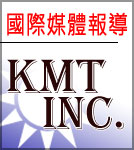Blue on green
Dec 2nd 2004 | TAIPEI
From The Economist print edition
Will President Chen Shui-bian get the parliamentary majority he needs?
LAST March, President Chen Shui-bian won re-election in Taiwan by 30,000 votes out of 13m cast. That slender majority has bedevilled politics ever since: but on December 11th, the president has a chance to seize control of parliament, and change the face of Taiwan's polity.
Mr Chen's opponents are the “pan-blue” alliance of Lien Chan of the Kuomintang (KMT) and his running mate, James Soong of the People First Party, a KMT splinter group. They insist that the presidential election was mismanaged and that the still unsolved election-eve shooting of Mr Chen, in which he was lightly wounded, was staged to get a sympathy vote. Their inability to produce evidence has not stopped them refusing to acknowledge the legitimacy of Mr Chen's government. But the chaos on the streets incited by the opposition after the presidential election and the obstructionism stemming from its control of the legislature throughout Mr Chen's first term have angered many Taiwanese.
Should Mr Chen's Democratic Progressive Party (DPP) and its smaller ally, the radically pro-independence Taiwan Solidarity Union, win a majority of legislative seats, the two—known as the “pan-greens”—have vowed immediately to pass a law stripping the KMT of any of the vast wealth acquired in its 40 years of one party-rule that it cannot legally account for. They also plan to launch investigations of human-rights abuses during that same period. For the KMT, which was still jailing—and sometimes murdering—its opponents only 20 years ago, and whose money-driven political machine has already been almost crippled by losing access to government coffers, this is a matter of life and death.
The DPP's campaign has, however, gone somewhat off-message. Mr Chen started out by telling Taiwanese about all the good things his government could do, if only it controlled parliament. But latterly he has focused on Taiwan's awkward international status, and such issues as reforming or rewriting its constitution. There is no chance the pan-greens will get the 75% super-majority needed to initiate constitutional amendment. But talking about such things angers both China, which sees it as a step toward Taiwan's independence, and Taiwan's protector, America.
For their part, the only real message the pan-blues have is that they should be elected to prevent Mr Chen from doing anything, in effect presenting gridlock as an end in itself. The Taiwanese electorate is therefore left with the far-from universally appealing choice of three more years without effective government, or trusting the sometimes erratic Mr Chen with real power.
The Economist Newspaper Limited, London(2 December 2004)"




 歡迎連結
歡迎連結